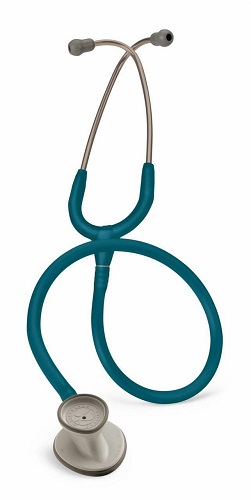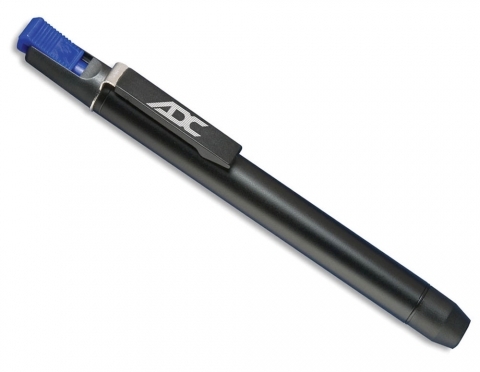 Loading... Please wait...
Loading... Please wait...Free Shipping on orders over $500
Categories
What Nursing Supplies Do Nurses Need?
Posted on 04/08/2021 10:05:57

What Nursing Supplies Do Nurses Need?
Whether you’re starting out as a nurse, stocking supplies for a nursing school or making sure the nursing team at your medical facility has all the right tools, it’s important to be familiar with the basic tools nurses use on a regular basis. Understanding the basic components of a nurse’s “tool kit” can help you make sure that your team always has access to up-to-date, working pieces of medical equipment that help them do their job and deliver top-notch patient care.
There are several key supplies a nurse or nursing student will need easy access to on a daily basis. Here are just a few:
14 Nursing Supplies Nurses Need
- Finger pulse oximeters
- Personal protective equipment
- Stethoscopes
- Alcohol wipes
- Blood pressure cuffs
- Thermometers
- Penlights
- Nursing scissors
- Medical tape
- Clipboard
- Hand sanitizer and lotion
- Retractable pens and markers
- Hemostat
- Reflex hammer
Nursing can be incredibly challenging and incredibly rewarding—professionally, emotionally, and physically. Caring for patients and assisting with various types of medical procedures, typically on 12-hour shifts, nurses spend the better part of those shifts on their feet, moving from patient to patient, taking care of their needs, their comfort and their recovery. To be successful in this kind of model, nurses need several standard items, ideally packaged in a tote bag, backpack or other portable nursing bag, so that they can carry their kit from patient to patient and procedure to procedure. Some nurses also like for this bag to be large enough to house a laptop computer.
While individual nursing supplies can vary depending on the medical facility or nursing school and the type of specific nursing care offered, there are some basic, everyday supplies that most nurses need. Whether stocking your own nursing school supplies or procuring nursing supplies for a medical facility, you’ll want to make sure to include these.
14 Nursing Supplies Nurses Need
Now we’ll take a closer look at some of the key supplies every nurse and nursing school should have on hand. Keep in mind, this is all in addition to comfortable scrubs and nursing shoes. Many nurses also tout the merits of both compression stockings and compression socks.
Finger Pulse Oximeters
Pulse oximetry is extremely important when it comes to patient assessment and care, particularly in a COVID-19 pandemic era, when blood oxygen levels are key indicators of a patient’s status.
A finger pulse oximeter is a small device that fits over the tip of a patient’s finger and measures arterial oxygen saturation of hemoglobin via a noninvasive sensor. This allows you or your nursing team to safely and effectively determine whether a patient is in distress due to low blood oxygen levels, regardless of whether that patient presents with visible symptoms. This knowledge helps prioritize patient care based on these data. If you’re dealing with nurses who assist in surgical procedures or who otherwise provide care for patients under anesthesia, finger pulse oximeters are also highly important.
Personal Protective Equipment
Nurses come into contact with a wide variety of pathogens and dangerous substances in the routine course of their clinical rotations, so it’s important that they always have access to safe and effective personal protective equipment (PPE). PPE are important emergency medical products for nurses should include disposable gloves, surgical masks and safety goggles, and protective aprons where appropriate.

Stethoscopes
Every nurse or nursing student needs at least one high quality stethoscope—it’s one of the most commonly used tools in the nurse’s arsenal and useful for listening to everything from the heart and lungs to the intestines.
The best stethoscopes are made of high-density materials like titanium or stainless steel, both of which are good for conducting sound. The ear tips of the stethoscope should fit comfortably in the ears, creating a seal that prevents ambient sound from getting through. Tubing should be sufficiently thick and crack resistant.
Nurses also should be stocked with the type of stethoscope that makes sense for their particular clinical specialty. For example, nurses working with cardiac patients should have specially designed cardiac stethoscopes, while those working within NICU units should have stethoscopes particularly designed to pick up heart sounds from premature infants.
Alcohol Wipes
Small packages of individually wrapped alcohol wipes ensure that you or our nursing team are able to quickly and easily sanitize items right after use—thermometers, hemostat, scissors, stethoscopes or any other medical device—in order to cut down on the spread of pathogens throughout your medical facility. And chances are that you or your nursing team will need to deliver IV push medications during the course of a shift, so having alcohol wipes handy is key for patient safety during that procedure.
Blood Pressure Cuffs
A sphygmomanometer, or blood pressure cuff, is a key diagnostic item for nurses to have with them at all times during clinicals. These can be digital or manual, but should be good quality and come with a robust warranty.
Thermometers
Nurses take temperatures multiple times during a typical shift, so they need to have thermometers within easy reach at all times. Depending on your medical facility or nursing school and the type of nursing services offered, you may choose ear, tympanic, forehead, temple, infrared, non-contact or digital thermometer models. Just make sure you and your team have access to a thermometer whenever they need it, along with probe covers and other appropriate PPE, depending on the thermometer model you’re using.

Penlights
Nurses often find themselves needing to check a patient’s pupils, neurological or skin status, so it makes sense for them to always have a penlight handy. In addition, a good penlight can help you or your team see what’s necessary in a patient room during the night without having to turn on overhead lights and disturb a patient. Penlights can also be helpful extra light when doing fine-motor tasks like inserting a catheter. Many penlights also clip onto pockets, clipboards, etc., which makes them harder to lose. Be sure to visit with your nursing team about the level of light they need, as penlights come in a variety of brightness levels. Make sure to purchase the brightness level that will be most helpful to you or your team.
Nursing Scissors
Nurses need specialized medical scissors to make sure they’re well prepared to cut through gauze, medical tape, dressings, tubing, medication packaging, gown strings, and more. These scissors are especially important if your nursing team deals extensively with wound care. In this case, you may consider stocking bandage scissors, designed specifically with an angled tip, plus a blunt tip on the bottom blade. This allows them to safely lift the bandage away from the patient’s skin before cutting. In addition, the blunt tip helps prevent accidental injury of both the nurse and the patient.
Medical Tape
Nurses need a constant supply of medical tape. Throughout a routine shift, you or your nursing team might re-tape wound dressings, tape IV poles, cover a blood-draw site or countless other tasks that medical tape makes easier.
Clipboard
Most standard-issue clipboards have very few features that add value to you or your nursing team. Instead, try to look for a nursing clipboard that incorporates items your team can use to help patients, such as calculators, assessment charts, a timer or alarm clock. Extra features like this keep you or your nursing team from having to carry all those extra items separately and allow the nursing clipboard to serve double, triple, even quadruple duty for your nurses and patients.
Hand Sanitizer and Lotion
These are important items, though technically not classified as medical devices. Nurses must have clean hands anytime they deal with patients, to protect both themselves and their patients. Making sure they have access to plenty of hand sanitizer means that they can sanitize their hands at a moment’s notice, and the hand lotion keeps their hands from getting sore, dry, chapped, etc., after repeatedly washing and sanitizing their hands during long shifts.
Retractable Pens and Markers
Nurses are famous for loving retractable pens, which can clip onto a variety of locations, from pockets to clipboards, notebooks, and individual papers. When you consider the sheer volume of information a registered nurse or nursing student encounters during a 12-hour shift that needs to be recorded, you want to make sure your nursing team always has access to high-quality retractable pens that they’re unlikely to lose as they travel throughout your medical facility. Some nurses report great success using four-color retractable pens that allow them to leave color-coded patient notes.
In addition, you or your nursing team needs a healthy supply of permanent markers. These are essential for labeling medications, IV bags/poles, catheter bags and much more.
Hemostats
Hemostats, also known as arterial forceps, are good, all-purpose tools that allow a nurse or nursing student to clamp just about anything, from IV tubing or catheter bags to arteries. They even can be used to hold a needle while suturing a wound or to crush pills for patients as long as they remain within their packaging.
Reflex Hammer
A registered nurse may need to perform a neurological test at any time during an exam or procedure. Most medical facilities tend to have an abundance of reflex hammers, but it’s a good idea to make sure your nursing team has them included in their core supplies so that they’re handy at a moment’s notice. Otherwise, these small medical devices have a tendency to be misplaced.

Where to Buy Nursing Supplies?
You can find the nursing supplies listed here at a wide variety of retailers, depending on the particular item and whether it’s classified as a medical device. While items like retractable pens and permanent markers are fairly easy to find anywhere, when it comes to highly specialized medical devices like blood pressure cuffs, hemostats, finger pulse oximeters and more, you’ll want to make sure you’re sourcing your nursing supplies from a reputable retailer with many years of experience.
USA Medical and Surgical Supply can be an outstanding partner for you when it comes to keeping your medical facility or nursing school well stocked with everything your team needs to provide the highest level of patient care. With decades of experience in both managing health care facilities and helping medical professionals find the medical supplies they need; our team is committed to customer excellence and wants to help you make the best possible decision for your medical facilities.
Get in touch with us today at 1-866-561-2380 or send us a message. We look forward to hearing from you and to helping you make sound, informed decisions about your nursing supply needs.
Nursing Supply Kits are Essential for Proper Patient Care
Nurses are often the backbone of a medical facility, assessing, monitoring and caring for patients while also recording and sharing important medical information that the patient’s entire team needs to know. To make sure you or your nursing staff are well equipped to meet this challenge, you’ll need to put some thought toward the kinds of care they deliver and the tools that help them reach the highest levels of excellent patient care. While the list presented here certainly isn’t exhaustive, it can help get you started on making sure you or your nursing team has access to the basic items they use repeatedly during their shifts.



